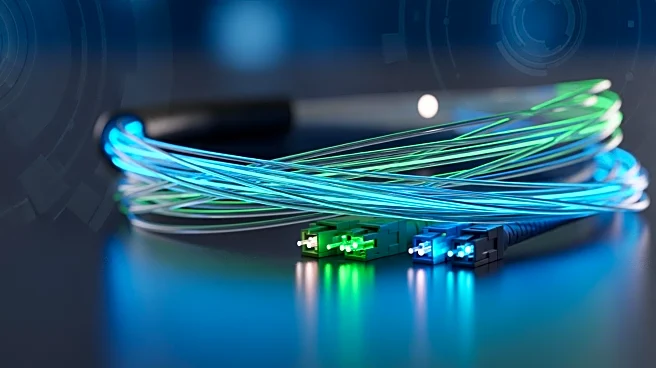What's Happening?
Telecom Fiji has announced the launch of the Nakorokula-Tavua Fibre Project, aimed at upgrading old and damaged fibre lines along the north coast of Fiji Island. This initiative is expected to enhance
connectivity for families, businesses, schools, and essential services across the Western Division. The project will provide stronger and more secure connections, supporting future development opportunities, particularly for businesses in the Tavua-Rakiraki corridor, identified as a key growth area for investment. Telecom Fiji CEO Charles Goundar highlighted the benefits of improved connectivity, including fewer service disruptions and better access to online services for communities, schools, health centres, and government operations.
Why It's Important?
The upgrade is significant as it promises to improve the efficiency and reach of local entrepreneurs, farmers, tourism operators, and government services. Businesses will gain access to modern digital tools and cloud services, enhancing customer service and operational capabilities. The project is expected to stimulate economic growth in the Tavua-Rakiraki corridor, attracting investment and fostering development in the region. By providing reliable and secure connections, Telecom Fiji is addressing critical infrastructure needs that can drive social and economic progress.
What's Next?
Work on the Nakorokula-Tavua Fibre Project is set to begin this month, with completion expected by May 2026. As the project progresses, stakeholders such as local businesses, government agencies, and community groups may engage in discussions to maximize the benefits of improved connectivity. The successful implementation of this project could serve as a model for similar initiatives in other regions, potentially leading to further investments in telecommunications infrastructure across Fiji.
Beyond the Headlines
The project underscores the importance of robust telecommunications infrastructure in supporting economic development and social well-being. It highlights the role of technology in bridging gaps in access to services and opportunities, particularly in remote and underserved areas. The initiative may also prompt discussions on the ethical and environmental implications of infrastructure development, ensuring that growth is sustainable and inclusive.










